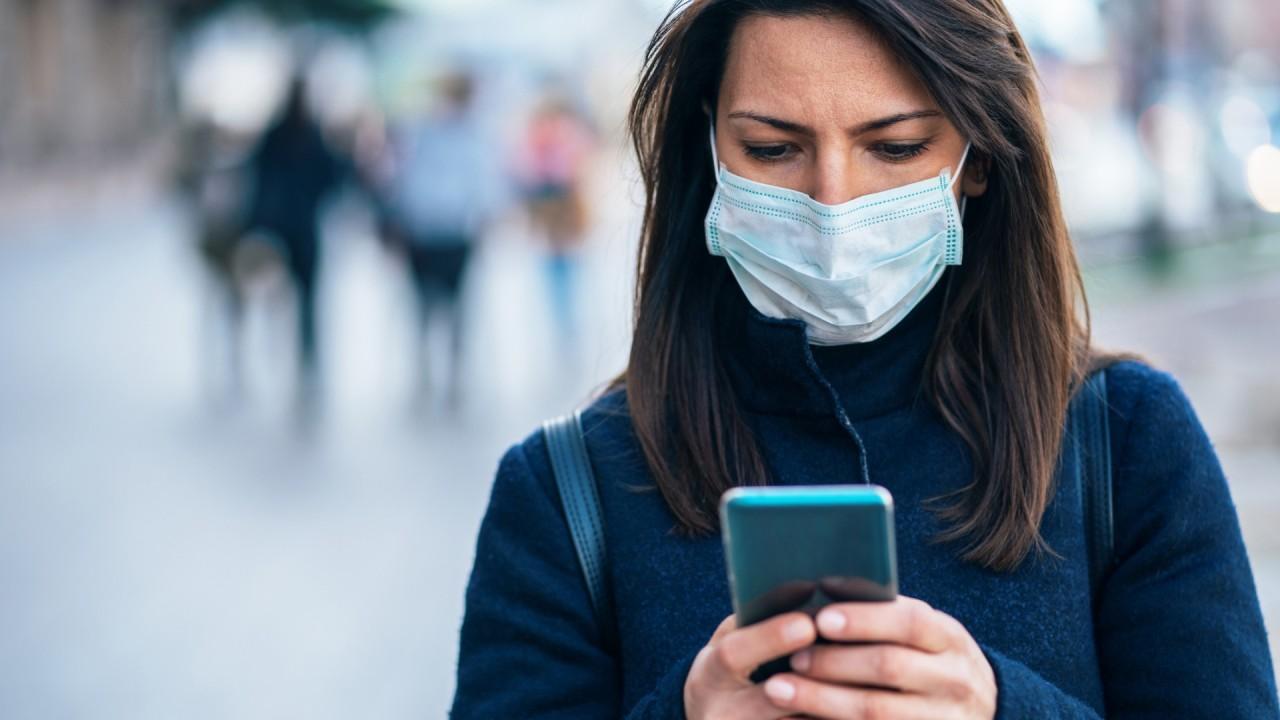Why wait for Apple, Google coronavirus apps? Contact tracing apps already available
Experts say the effectiveness of any contact-tracing app depends on 'the quality of data that users submit'
Get all the latest news on coronavirus and more delivered daily to your inbox. Sign up here.
Apple and Google are expected to release software in May that will allow public health agencies to launch coronavirus contact-tracing apps for iPhones and Androids.
In the coming months, they will also insert this functionality, which uses Bluetooth wireless technology to track COVID-19 carriers, directly into the operating systems of iPhones and Androids, allowing users to partake in the effort without having to even download an app.
But other COVID-19 contact-tracing apps and tools already exist, and the public doesn't have to wait a month to use them.
APPLE, GOOGLE TO TRACK CORONAVIRUS INFECTION VIA SMARTPHONES
"There are indeed other contact-tracing apps on the market that have a bit of head start versus the Apple-Google effort, but they still suffer from the same Achilles heel that the Apple-Google effort does," Mark Vena, senior analyst at technology advisory firm Moore Insights & Strategy told FOX Business.
The Achilles heel in this situation is an app's effectiveness in accurately tracing COVID-19 carriers — a function "built on the quality of data that users submit," Vena said.
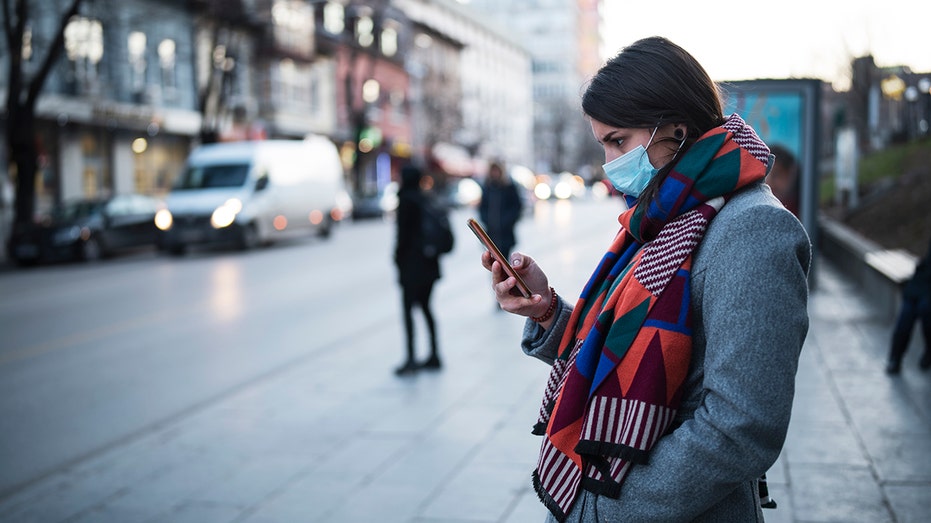
Side view of young woman with face protective mask on the street. / iStock
Networking software company HypeLabs, for example, launched a private and anonymous contact-tracing app called CovidApp on Monday that is available for local, state and national governments, according to a press release.
APPLE, GOOGLE CORONAVIRUS TRACKING TOOL WILL REQUIRE VERIFICATION
The app uses Bluetooth and works with local hospitals and governments to inform users — even those without internet — of their chances of contracting the virus if they have been in contact with a COVID-19-positive person.
"What Google and Apple are doing is great for raising awareness of contact tracing in general, but there are inherent limitations to what they are creating," a HypeLabs spokesperson said. "They are providing technology to other agencies and institutions to create their own apps. Timing is everything, and this will just delay the process."
The spokesperson added that the Google-Apple system does not offer an end-to-end solution like the CovidApp does.
"The problem with this is that when you match the ID of the phone with medical data from when someone gets tested, this is where there can be a security breakdown, which is why having an end-to-end system is very important. If there is no good technical support on the database side ... the medical data can be easily compromised and that makes the effort entirely worthless," the spokesperson said.
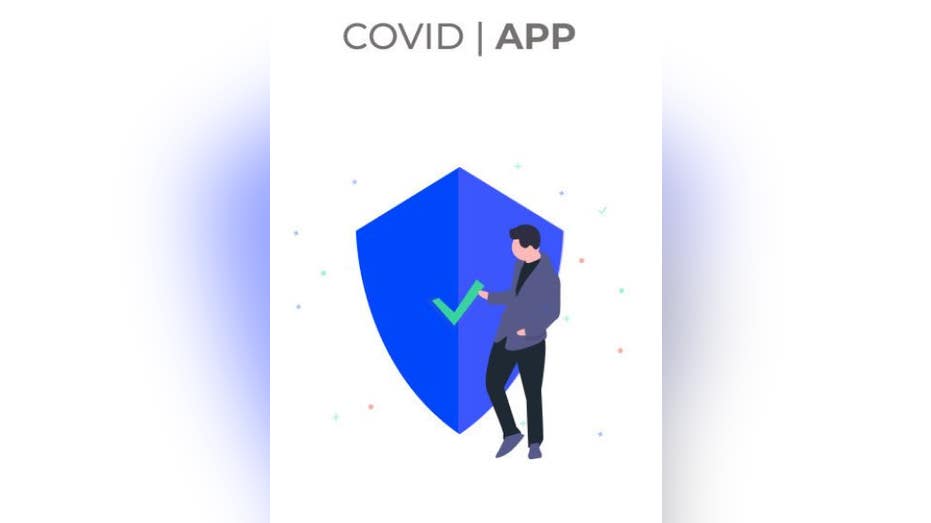
The CovidApp maintains privacy by assigning a random Unique Device ID, and no personal data is ever collected. / HypeLabs
Other contact-tracing apps use slightly different methods to trace COVID-19 carriers and potential carriers but may be more appealing to certain individuals.
Communication technology company Sydnesy, for example, launched a "Check-Ins" feature on its app Monday that allows COVID-19 patients to track their own movement to keep their communities informed. The feature is reliant on voluntary movement records, according to a press release.
APPLE HAS SOURCED 20M CORONAVIRUS MASKS: CEO TIM COOK
CarePredict's PinPoint Toolset similarly tracks COVID-19 carriers and potential carriers but in specific environments like nursing homes or assisted living facilities, the company said in a March 31 release.
But Apple and Google's joint tracing effort announced April 10 has caught America's attention. The idea that two of the most popular brands in the United States are willing to temporarily push competition aside and join forces to help contain a global pandemic has some people feeling hopeful for a potential solution.
Apple and Google are trusted names among the U.S. public. Vena pointed out that their "respective operating systems comprise [more than] 90 percent of the overall smartphone market, particularly in the United States," which already gives them an edge over other contact-tracing apps.
Users may be less likely to share test results and location information with an app that comes from an unrecognizable name.
GOOGLE'S ALPHABET DRONES DELIVER CORONAVIRUS SUPPLIES
The two tech giants are in a "superior position from a technology implementation standpoint to make this a workable solution," he said.
Still, privacy and civil liberties activists have warned that such apps need to be designed so governments cannot abuse them to track their citizens.
American Civil Liberties Union (ACLU) surveillance and cybersecurity lawyer Jennifer Stisa Granick warned that the Apple-Google effort could pose "significant risks to privacy, civil rights, and civil liberties," adding, "If such systems are to work, there must be widespread, free, and quick testing available."
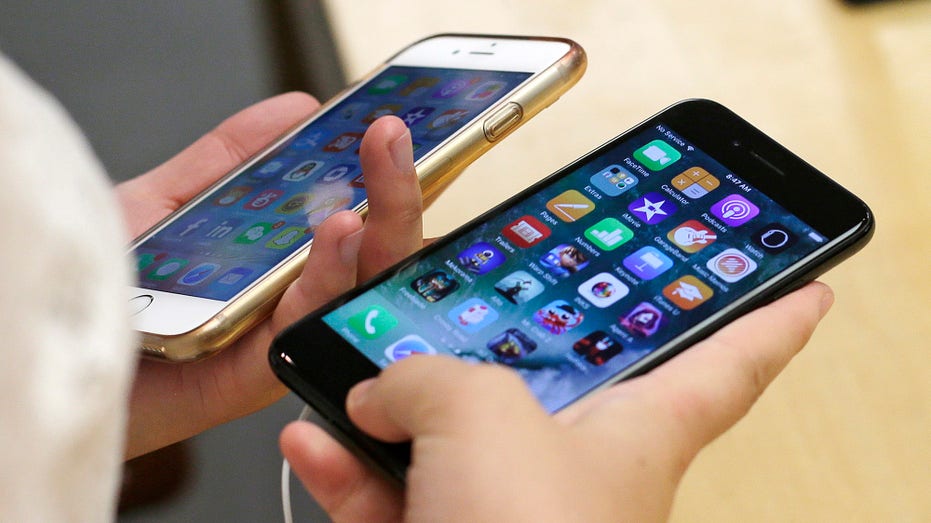
A customer compares her iPhone 6, left, with an iPhone 7 at an Apple Store in Chicago. (AP Photo/Kiichiro Sato, File)
While Google has faced far more scrutiny for its privacy practices than Apple, which offers built-in encryption on its iPhones, the two tech giants said in a joint April 10 statement that user privacy and security are baked into the design of their contact-tracing plan.
James Ward, managing partner at data privacy firm Ward PLLC, said he has reviewed documentation from Apple and Google regarding the effort, "and it seems like they're attuned to privacy concerns."
GET FOX BUSINESS ON THE GO BY CLICKING HERE
The companies recognize that "high levels of adoption and enforcement [with similar apps] in other countries rely on models that would be highly unpopular in the United States."
In Russia and China, for example, people are required to use apps or electric passes that indicate whether they have tested positive or negative for COVID-19 to use public transportation and take part in public activities. Law enforcement has taken an active role in both countries to ensure people are using the apps correctly.
In South Korea, residents criticized the government for actively using personal information — including immigration, public transportation, credit card and smartphone GPS data — to track COVID-19 patients and their contacts in an effort to contain the virus.
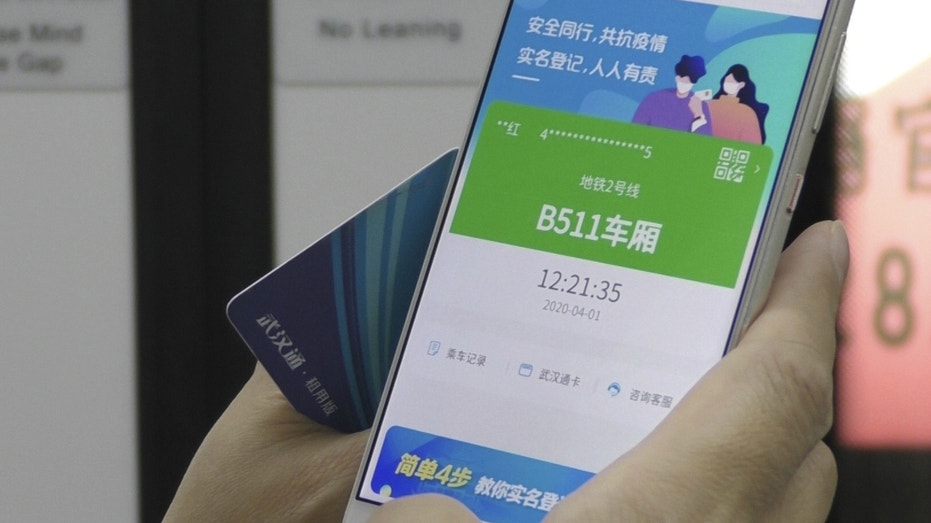
In this April 1, 2020, photo, a passenger holds up a green pass on their phone on a subway train in Wuhan in central China's Hubei province. (AP Photo/Olivia Zhang)
There are bigger concerns than privacy, Ward said, including "the public becoming acclimated to tracking as a basic fact of life" and "the reliability of the app affecting the degree of personal acquiescence to increasingly invasive attributes."
"Slippery slope arguments are always available, but that doesn't mean that they're always wrong," he added.
Another reason Americans may opt to use a contact-tracing app using Apple-Google software over others is because people realize the enormous reach these two tech giants have, especially with help from public health agencies. With access to a massive amount of data, the apps that use their technology may present more accurate information on a larger scale.
The two companies have already made extensive efforts to expand into health care systems across the country.
Despite their potential to reach mass participation, experts are concerned that won't be enough for the apps to be effective.
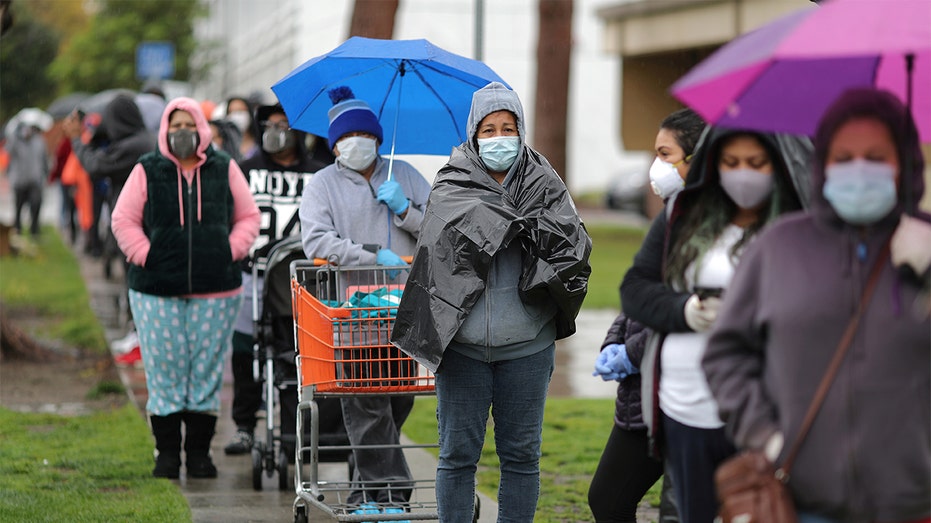
People queue to pick up fresh food at a Los Angeles Regional Food Bank giveaway of 2,000 boxes of groceries, as the spread of the coronavirus disease (COVID-19) continues, in Los Angeles, California, U.S., April 9, 2020. REUTERS/Lucy Nicholson
"Apple and Google have obviously put forward a strong effort to help with contact tracing, but containing a pandemic depends on more than a single app. Even setting aside the serious privacy concerns, unless the new app is a material improvement over all its predecessors, highly and immediately functional, and widely adopted, it will be helpful, but probably not a game-changer," Ward said.
He added that the Google-Apple apps have to "be part of an array of tools [such as] testing, social distancing, cooperation between public health entities and researchers before its value becomes evident."
CLICK HERE TO READ MORE ON FOX BUSINESS
"Tracking is not containing, and monitoring is not curing. It's going to take more than an app for that," he said.
Vena similarly expressed concern that the apps may not be effective if Google and Apple don't require smartphone users to participate. And even if they do opt-in, there is a chance users could report "false positives."
"The effectiveness of these apps completely breaks down if the aggregate data is not accurate," he said.
This article has been updated to include warnings from the ACLU. The Associated Press contributed to this report.




















